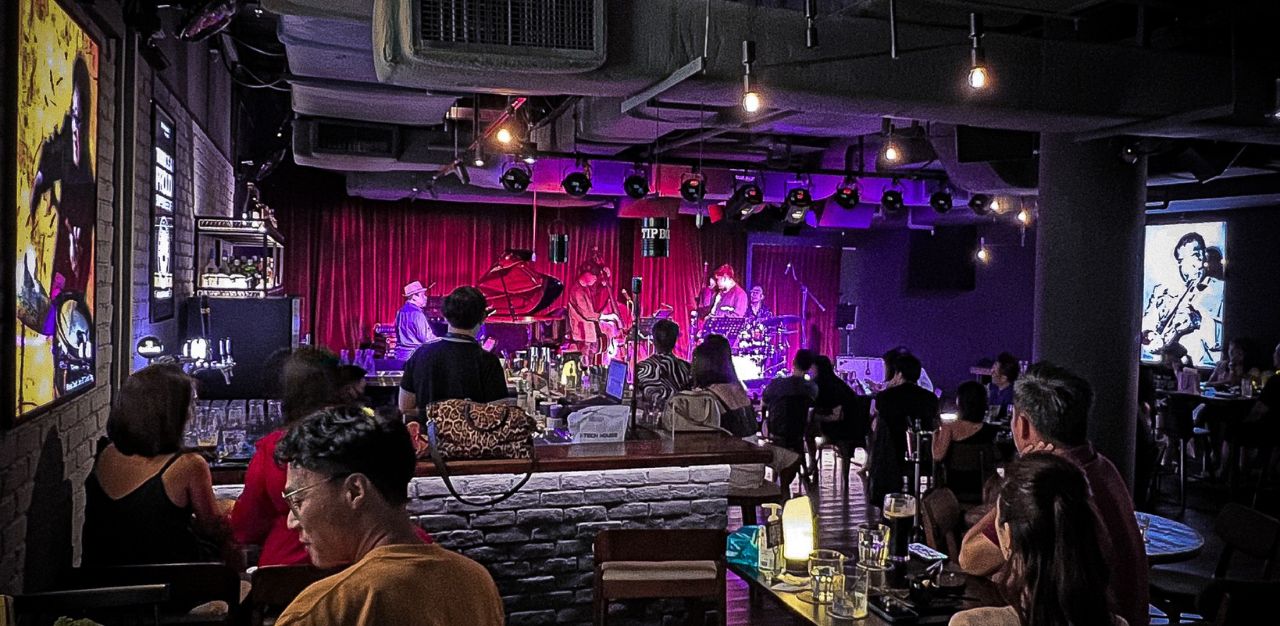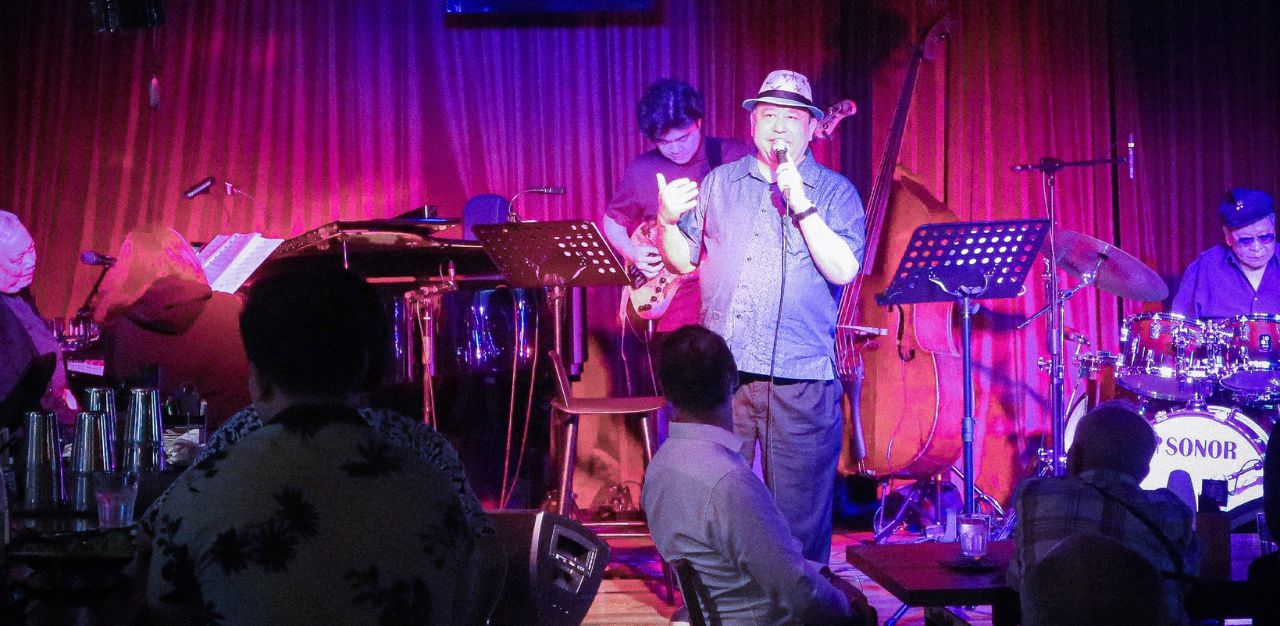Who doesn’t love a great comeback story?
After all, Rocky Balboa stepped out of retirement for a bout with Mason “The Line” Dixon. Liverpool FC clinched the 04/05 Champions League in Istanbul against AC Milan in penalties. And then there is Kim Kardashian.
2022 is the year of the comebacks.
For Singapore, it is the small, but perhaps noisiest sector of the economy – the live music venues. It quite literally celebrates the return to business on 26 April.
That was the day when the nation’s DORSON level turned yellow and Safe Management Measures (SMM) were relaxed throughout. The office lunch gangs regrouped and the borders were opened for tourists. Singapore’s economy was back and ready for business.
The live music and events industry had taken the brunt of the SMM restrictions, being among the first to close and the last to reopen. And when it comes to the beating heart of the industry – the musicians, many of whom eke out a living by juggling jobs and working long hours, all in the pursuit of craft and entertaining the masses – you might empathise the next time you hear a musician play “Wonderwall”.
With many bars and pubs having shuttered due to the restrictions of the Covid-19 pandemic, their war chests dried up, and venues now fewer and far between, how are the live musicians making a comeback to the stage?
From the ashes we rise

The past two years have not been kind, especially to live musicians. Like many in the wider society, they had to suspend activities and pivot to eke out a livelihood. Some had to adapt by taking their trade to the live streaming platforms, while others took on jobs like food delivery to feed the family.
With the relaxation of SMM restrictions, the township has returned to become a tad rowdy. Local singer-songwriter CIRCO, describes the reopening of live music venues as “a feeding frenzy”.
“Everyone is like piranhas. After the relaxing of measures, there have been many new bands trying to get into the space. The local musicians all know one another, so it’s interesting to see some new faces. I think during the lockdown, many people had been exploring new interests, so I see a lot of unknown faces now. It’s great for the economy because there have been a lot of opportunities,” says the 26-year-old.
“Performing live used to be my full-time gig before the lockdown. I got a day job during Covid, but now I’m back. The economy has recovered and it’s way better now. In terms of pay. Due to the higher demand, music venue operators are willing to pay more to musicians. Also there are many gigs, many bars are looking for musicians, which is good,” he adds.
CIRCO started his career in music as a busker before pursuing music full-time. He is a regular performer across the various outlets at the Tipsy collective.
JQ, another full-time musician before Covid-19, has since found different employment and considers himself retired. But he still performs once a week when his friends need substitute musicians.
“I realised more venues are opening up. I have been receiving so many calls asking me to help, which means there are too many venues now,” says JQ. He usually performs at Bar Bar Q.
“We have a lot of bands in the queue right now. There are new bands and singers who have approached us during this time to perform,” says Karin, marketing manager of Bar Bar Q.
Triumvirate: musician, venue, consumer

While many establishments that offered live music entertainment, including popular venues like Starker bar and Switch by Timbre, shuttered due to the pressures of the pandemic restrictions, there seems to be a sort of “mutualistic working formula” that several venues have managed to work out.
“Usually bar food is quite gimmicky, whereas Tipsy’s food is really top-notch. And from a management perspective, they’ve already gathered a community of musicians and scheduled us for different days. We all know one another. It’s up to organisers to really build a platform where consumers can come in and take part. As musicians, we focus on our craft, we don’t necessarily have the best skills for these parts. In terms of financial stability, Tipsy is a great place for musicians,” CIRCO tells TheHomeGround Asia while on his break.
Venues like Tipsy provide a platform for musicians while the musicians themselves draw in the crowd. The crowd is satisfied with the food, atmosphere, music and pays their money’s worth.
“I wouldn’t want to sacrifice any gigs at Tipsy to perform elsewhere because they treat us so well. From a musician’s standpoint as well, other bars might ask us to lower our volume, or treat us like background music, which I detest. It makes me question why they want us there in the first place? There’s always spotify for that. Tipsy encourages us to play our hearts out and interact with the crowd,” CIRCO adds.
Deputy general manager of Tin Box Group Charmaine Wong says that it is important for venues to look after their musicians.
“Since day one, we didn’t let any of our musicians go, no pay cuts. So they’ve stuck with us through the two years of pandemic till today. So there was no difficulty reviving in our live music business when the measures were relaxed,” she says.
“The musicians are really the heartbeat of our live sounds. Live performances are something that the crowds have been yearning and craving for since the lockdown, and our musicians really hype up the crowd. The audience is equally important, even if we have the best sound system, the best venue, the best musicians, nothing moves without the crowd,” she adds.
Sticking the landing

The recovery plan for the live music economy seems to have been well executed.
Venues are opening late, musicians are doing their thing, and the crowds are out in droves to support their favourite bands and watering holes. While the proverbial fat lady might not have sung, there’s an air of optimism that the live music scene has turned the Covid corner, and made its sophomore comeback with a bang.
While it is tempting to think of the revival of an industry in a commercial mindset like marketing and business development, CIRCO reminds that at its core, live music is not so much a means to an end, but an end in itself.
“Nothing beats the atmosphere of playing live, it’s hard to replace. I’m a muay thai trainer and I teach as well. I think we need balance, if you’re an aspiring musician, you need a day job, just in case anything goes south. I used to be a busker, then I slowly played more and found that the stability a gig provides is solid. My whole goal is to release music, and in the meantime we do things like busking or live gigs to supplement ourselves. By coming out and supporting us, it’s great to get things back to as it was before. Come out and check out these bands,” he says.
“Am I an optimist? I’m still gonna keep my day job but there’s a lot of opportunities now. I’m just glad that it came back and hope it doesn’t go away again,” he adds.
Join the conversations on TheHomeGround Asia’s Facebook and Instagram, and get the latest updates via Telegram.














